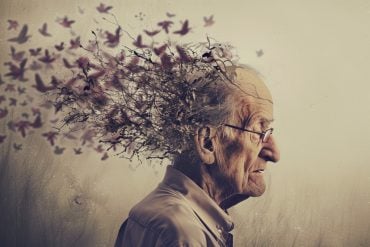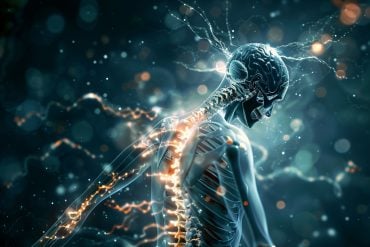Many studies have linked more sleep to better memory, but new research in fruit flies demonstrates that extra sleep helps the brain overcome catastrophic neurological defects that otherwise would block memory formation, report scientists at Washington University School of Medicine in St. Louis.
Studying three groups of flies, the scientists interfered with their ability to remember by disabling a different critical memory gene in each group.
In one group, the disabled gene led the flies to develop a condition with similarities to Alzheimer’s disease. In another group, the disabled gene made it difficult for fly brain cells to reinforce new connections that encode memories. In the third group, the disrupted gene left the flies with too many of these connections.
“Our data showed that extra sleep can handle any of these problems,” said senior author Paul Shaw, PhD, associate professor of neurobiology. “It has to be the right kind of sleep, and we’re not sure how to induce this kind of slumber in the human brain yet, but our research suggests that if we can learn how, it could have significant therapeutic potential.”
The study appears online Thursday, April 23, in Current Biology.
Shaw works with fruit flies to explore the brain mechanisms that control sleep, which he and others have shown to be similar to those seen in people.

As part of the new study, the scientists restored memory in each group of flies by using one of three techniques to increase sleep. They stimulated a cluster of key brain cells, boosted the production of a protein linked to sleep or gave the flies a drug that mimicked the activity of an important chemical messenger.
Regardless of the technique used to increase sleep, the added slumber — an extra three to four hours of sleep daily over as little as two days — restored the flies’ ability to make memories.
“In all of these flies, the lost or disabled gene still does not work properly,” noted lead author Stephane Dissel, PhD, a senior scientist in Shaw’s lab. “Sleep can’t bring that missing gene back, but it finds ways to work around the physiological problem.”
Shaw and others believe sleep helps the brain reinforce connections between brain cells that encode important memories and cut back connections that encode useless information.
Funding: The research was supported by the National Institutes of Health (NIH), grants R01-NS051305-01A1, NS057105 and T32GM008151; and NIH Neuroscience Blueprint Core, grant number NS057105.
Source: Michael C. Purdy – Washington University School of Medicine in St. Louis
Image Source: The image is in the public domain
Original Research: Abstract for “Sleep restores behavioral plasticity to drosophila mutants” by Stephane Dissel, Veena Angadi, Leonie Kirszenblat, Yasuko Suzuki, Jeff Donlea, Markus Klose, Zachary Koch, Denis English, Raphaelle Winsky-Sommerer, Bruno van Swinderen, and Paul J. Shaw in Current Biology. Published online April 23 2015 doi:10.1016/j.cub.2015.03.027
Abstract
Sleep Restores Behavioral Plasticity to Drosophila Mutants
Highlights
•We have identified a novel sleep-promoting agent in flies
•Sleep restores STM and LTM to classic memory mutants
•Sleep reverses memory deficits in a Drosophila model of Alzheimer’s disease
•Three different sleep-promoting mechanisms restore plasticity in mutant animals
Summary
Given the role that sleep plays in modulating plasticity, we hypothesized that increasing sleep would restore memory to canonical memory mutants without specifically rescuing the causal molecular lesion. Sleep was increased using three independent strategies: activating the dorsal fan-shaped body, increasing the expression of Fatty acid binding protein (dFabp), or by administering the GABA-A agonist 4,5,6,7-tetrahydroisoxazolo-[5,4-c]pyridine-3-ol (THIP). Short-term memory (STM) or long-term memory (LTM) was evaluated in rutabaga (rut) and dunce (dnc) mutants using aversive phototaxic suppression and courtship conditioning. Each of the three independent strategies increased sleep and restored memory to rut and dnc mutants. Importantly, inducing sleep also reverses memory defects in a Drosophila model of Alzheimer’s disease. Together, these data demonstrate that sleep plays a more fundamental role in modulating behavioral plasticity than previously appreciated and suggest that increasing sleep may benefit patients with certain neurological disorders.
“Sleep restores behavioral plasticity to drosophila mutants” by Stephane Dissel, Veena Angadi, Leonie Kirszenblat, Yasuko Suzuki, Jeff Donlea, Markus Klose, Zachary Koch, Denis English, Raphaelle Winsky-Sommerer, Bruno van Swinderen, and Paul J. Shaw in Current Biology. Published online April 23 2015 doi:10.1016/j.cub.2015.03.027







